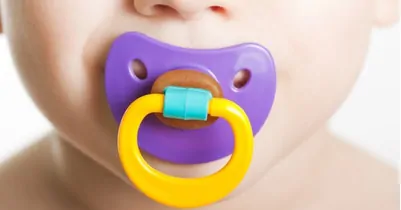
Getting your child to part with the pacifier can be daunting. After all, the binky provides comfort, soothes cranky, tired babies, and can even reduce the risk of sudden infant death syndrome (SIDS). But when it comes to the development of teeth and overall oral health, our pediatric dental office in Long Island encourages your child to toss the binky by age two. But breaking the habit isn’t always easy, so we’re here to give you some tried-and-true tips.
There are many benefits to breaking the binky habit sooner rather than later, and your pediatric dentist in Long Island surely agrees. Chronic use of a pacifier can not only cause development issues with the teeth and mouth, it could also lead to speech difficulties, ear infections, and complete reliance on the binky.
This method requires patience from both you and your child, but it could be the most appropriate for your family. Most success stories of the cold turkey technique begin by preparing your child in advance and giving them a deadline. For example, tell him that on his second birthday he will need to give up the pacifier because he will be a big boy. Then be prepared to stick to your plan if he asks for the binky after his second birthday.
If the cold turkey tactic doesn’t feel right to you, it may be better to try a gradual approach. Weaning your child of her pacifier slowly and gently can be a really successful system. Start by restricting use to certain times or certain places, like at bedtime and in her bed only. From there, you can begin whittling away at acceptable times to use the pacifier until she’s officially binky free.
The story of the Binky Fairy can help end a toddler’s dependence on the pacifier. The idea is during a quick visit at night, the Binky Fairy takes the child’s beloved binky and gives it to a baby in need. The toddler is thanked for helping with little gifts and a note expressing thanks from the Binky Fairy herself.
If you’re struggling to toss the pacifier, call our Long Island pediatric dental office. We can answer any questions you may have and help make the transition easier for you and your child.
Welcoming patients from Long Island, Westbury, Nassau County and surrounding areas.